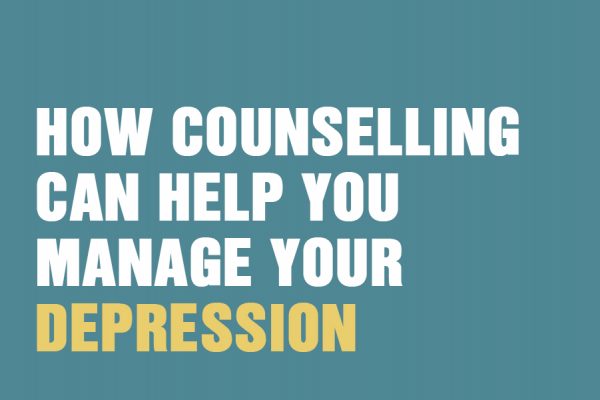If life is getting on top of you, and daily struggles are becoming too much, then you may come to a point when you’re ready to reach out for psychological help. The decision to come into therapy can take courage. Yet the very act of asking for support can be daunting in itself.
While weekly counselling and psychotherapy sessions can support you as you explore your issues and gain a greater understanding of yourself, for some people there are fears holding them back from allowing themselves this experience.
Here we share the four biggest fears that people have about coming into therapy – and how to overcome them.
Fear of falling apart
Over the years you will have put robust defences in place – often established from childhood – that you use to keep you going. Defences – like keeping a stiff upper lip, or refusing to cry – can be like scaffolding holding you up. You fear that if you let those defences down then your whole structure will fall apart. If you give in to your feelings of anxiety, sadness, loss or loneliness, then you fear you will be overwhelmed and unable to recover.
This is a very real fear, especially if you have valiantly ‘coped’ for many years. Yet the process of therapy, and the relationship with your therapist, will make it gradually safer for you to soften those defences and allow access to the raw feelings beneath. You won’t experience anything you won’t be able to deal with – and, in fact, the feelings often wait until you are ready. Therapy is about trusting that process.
Fear of being judged or shamed
Yes, it may seem initially rather odd to open up to a complete stranger about the issues that are troubling you. If you generally keep your problems to yourself, then it can feel exposing to hear yourself talk about stuff out loud. You may fear that the person listening to you may judge you and what you’re saying. Do they like you? Will they embarrass or shame you when you spill out your fears and feelings?
In reality, counsellors and psychotherapists go through years of training and personal development to process their own issues so they can be fully present for their clients. Therapists don’t judge, shame, or impose their own opinions on you. They offer a safe, confidential and empathic space for you to explore the darkest corners of your psyche. Therapy can help bring unconscious issues into consciousness where you’re able to explore and discuss them. When you become more aware of what is going on, and your issues are out in the open, they can have less of a hold on you, and you can feel lighter and freer as a result. Let the relationship with your therapist build to a point where you feel safe and supported to let everything come out in its own time.
Fear of seeming mad/weird/abnormal
A common fear is that people will think you’re mad if you’re seeking therapy. Surely it’s only for people with serious issues, right?
Wrong. Any problem that is getting in the way of you living your life is worth exploring and working through. It doesn’t matter if other people in your life don’t agree with, understand or support your decision to come to therapy. It’s irrelevant whether other people need support than you. Coming into therapy can be a way of creating the life you want, rather than enduring the life you’ve got.
Fear of becoming dependent
If you’ve managed for years on your own then you may fear becoming dependent on your therapist – or wonder whether you will always be in therapy.
When therapy is going well, you can build a positive attachment to your therapist. He or she is the one who ‘gets’ you. They support you week on week as you grapple with the issues, behaviours, emotions and thoughts that are disrupting your life, and as you seek to understand why you are the way you are. You look forward to your sessions, you use your time to the full, and you are starting to see positive changes in your life.
The relationship with your therapist is not a dependent one. It is a relationship that nurtures growth. Your therapist can work on an open-ended basis with you, but you are the one who will know the point in your journey when you’re ready to walk alone. This can take weeks, months or years, depending on the issues you are bringing to therapy. You decide when you’re ready and your therapist will manage the ending so that you’re not left with any loose ends. The process will enable you to develop a stronger sense of self so that you feel more robust to face life without the old scaffolding.
If you feel ready to face your fears and explore your issues and struggles with one of our team of therapists, call today to make a confidential appointment. There will be no judgement about any issue you bring. Call 020 8673 4545 or email [email protected].








3 Comments. Leave new
These fears are faced by all kinds of people, whether they have been going to therapy for years or are just starting out. The important thing to remember is that the first step towards solving a problem is asking for help – everything else falls into place soon afterwards! Therapists aim to ensure patients are able to continue with their normal lives with a healthier and more optimistic outlook on life, and "trusting the process" is an excellent motto to adopt.
Hello Fatima. Thank you for commenting on our post. Yes, we agree that trusting the process is a great motto. Once clients get over the fears then therapy can be such a rewarding experience. It’s all about taking that first step… Best wishes, Michaela
So many patients are afraid of therapy, not realising the untapped potential of something as simple as the "talking remedy" – halfway through a conversation they will often find the solution to their problems through something they have said on their own. Treating a therapist as a sounding-board is a good way to begin: once the comfort level develops adequately, the fears begin to ebb away. Nicely expressed!